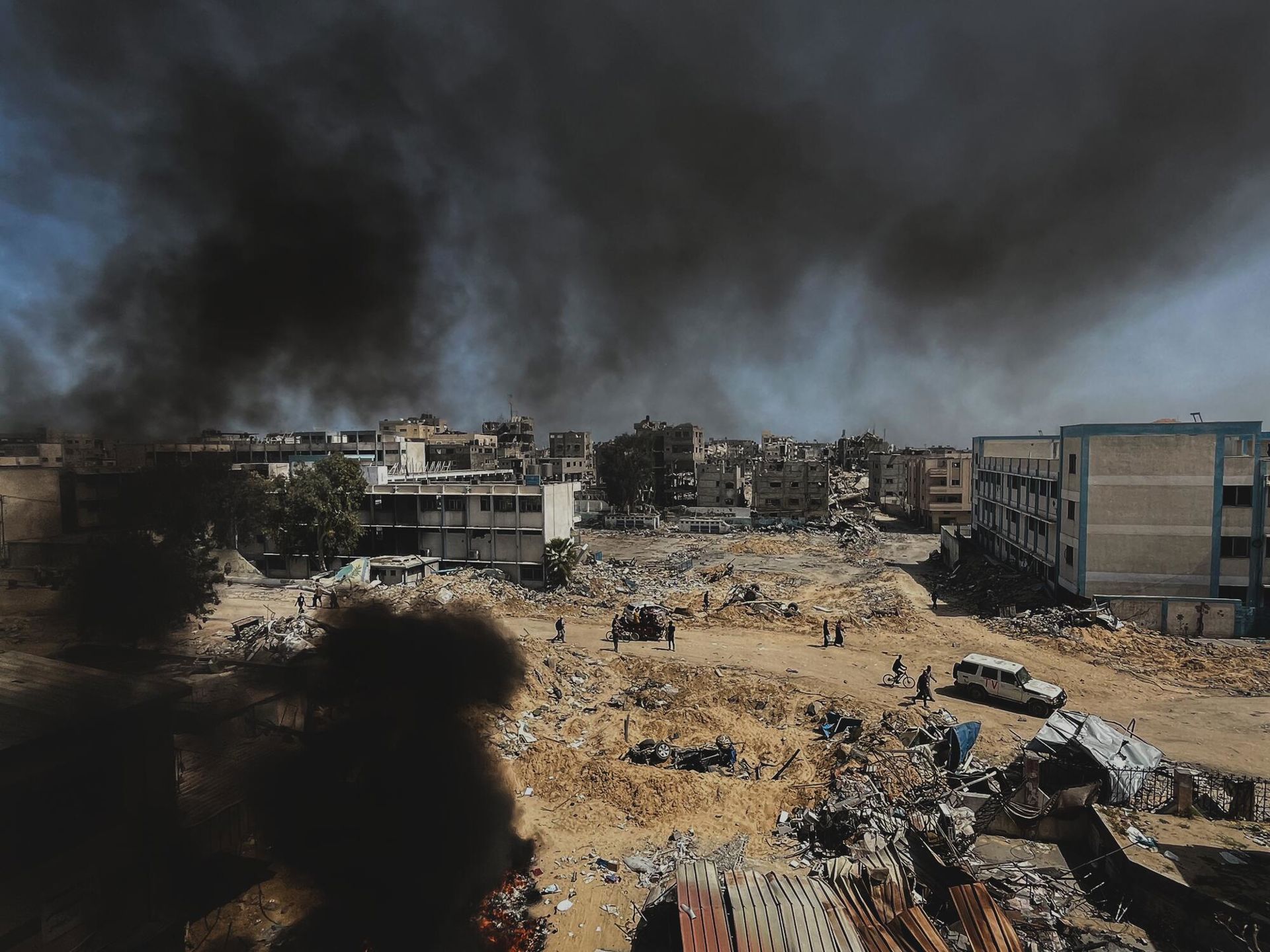Since the beginning of June, more than 800 people have been killed and over 2,400 wounded in intense bombing and ground offensives by Israeli forces in the Gaza Strip, according to health authorities; these horrific attacks have led to unacceptable pain and suffering and illustrate a clear disregard for Palestinian lives, says Médecins Sans Frontières (MSF).
Numerous military offensives in recent weeks have led to recurrent mass casualty influxes at MSF-supported medical facilities in Rafah and the Middle Area of Gaza. MSF calls on Israel to immediately halt these massacres. We also call on Israel’s allies, including the United States, United Kingdom, and European Union member states, to do everything in their power to influence Israel to stop attacks on civilians and civilian infrastructure in Gaza.
According to local health authorities, 274 people were killed on 8 June alone. On that day, over 60 severely injured patients, including unconscious children, were referred to the MSF-supported Nasser hospital. Meanwhile, at Al-Aqsa hospital, we supported medical teams who received 420 wounded and 190 dead, again with many children among the casualties. Those admitted bore the hallmarks of intense kinetic strikes: dismemberment, severe trauma, burns and open fractures.
“How can the killing of more than 800 people in a single week, including small children, plus the maiming of hundreds more, be considered a military operation adhering to international humanitarian law? We can no longer accept the statement that Israel is taking ‘all precautions’ - this is just propaganda,” says Brice de le Vingne, Head of MSF Emergency Unit.
Earlier in the same week, Israel repeatedly bombed so-called safe zones, refugee camps, a school and multiple humanitarian warehouses, which were formally registered as ‘deconflicted’ by Israeli forces. Heavy strikes on 4 June in the Middle Area resulted in at least 70 deaths and over 300 wounded Palestinians, mostly women and children, who were brought to the MSF-supported Al-Aqsa hospital with severe burns, shrapnel wounds, and fractures.
“Since October (and certainly before), the dehumanisation of Palestinians has been a hallmark of this war. Catch-all phrases like ‘war is ugly’ act as blinders to the fact that children too young to walk are being dismembered, eviscerated and killed,” says de le Vingne.
These attacks are the latest in a broad litany of atrocities and illustrate the type of war that Israel is fighting. Israel and its allies have repeatedly shown that there is no watershed moment, or red line in this violence. The attacks now known as the flour massacre, the tent massacre; or the killing of aid workers and their families, the annihilation of hospitals and the health system more generally, have led to no more than weak diplomatic posturing, empty words, and staggering inaction.
On 10 June, the United Nations Security Council vote brought by the United States and requiring a ceasefire and the unfettered supply of humanitarian aid was adopted. This ceasefire and the accompanying supply of aid must be facilitated immediately and, in contrast with previous and similar resolutions, be implemented with immediate effect. Failure to do so will cost more lives and be yet another stain on the collective conscience.
Contrary to the repeated public communications of the Israeli authorities, humanitarian aid has been denied or severely impeded since October. The lack of essential medical supplies and equipment, the bureaucratic delays from Israeli authorities in granting security and supply approval to establish field hospitals, have made it near impossible to provide even basic healthcare. Field hospitals are only necessary because the healthcare system in Gaza has been systematically dismantled – they can in no way replace a robust and functional healthcare system.
More than 37,000 men, women and children have been killed in Gaza and more than 84,000 wounded according to the Ministry of Health. The Security Council resolution of 10 June must be implemented without delay: safe zones are nonexistent in Gaza, International Humanitarian Law principles are not being upheld and humanitarian aid is systematically being impeded. There must be an immediate and sustained ceasefire, and unfettered humanitarian aid must be allowed to enter Gaza at scale.



